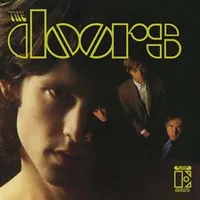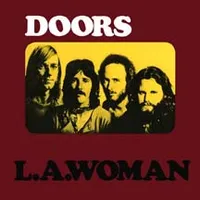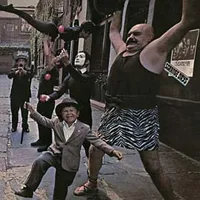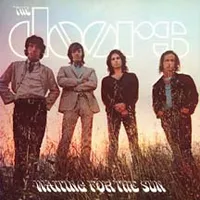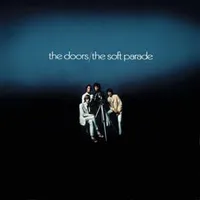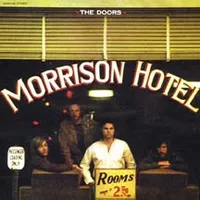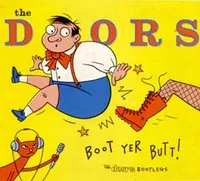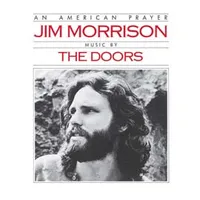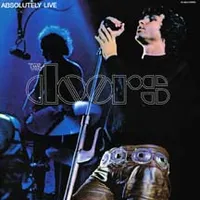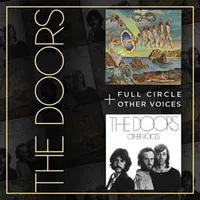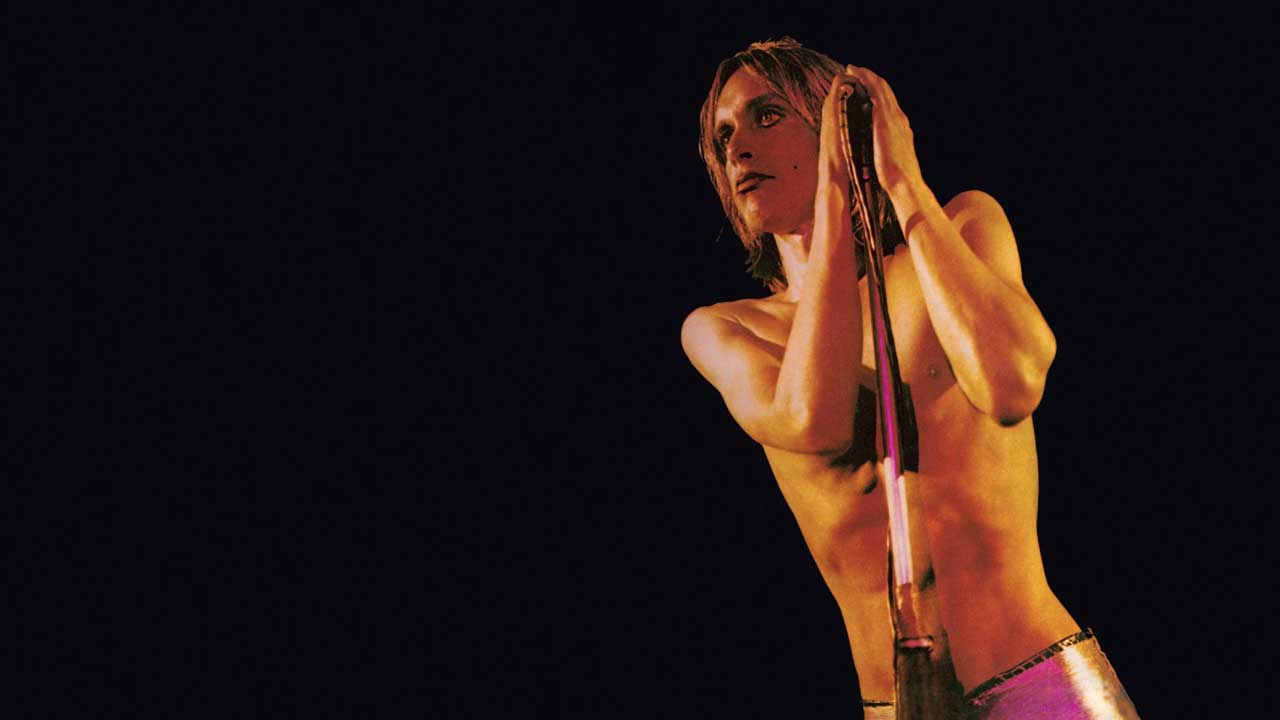Nine albums by The Doors you need to hear... and one to avoid
More than just a band that produced some classic music, The Doors and Jim Morrison remain iconic, their recordings embraced by each new generation
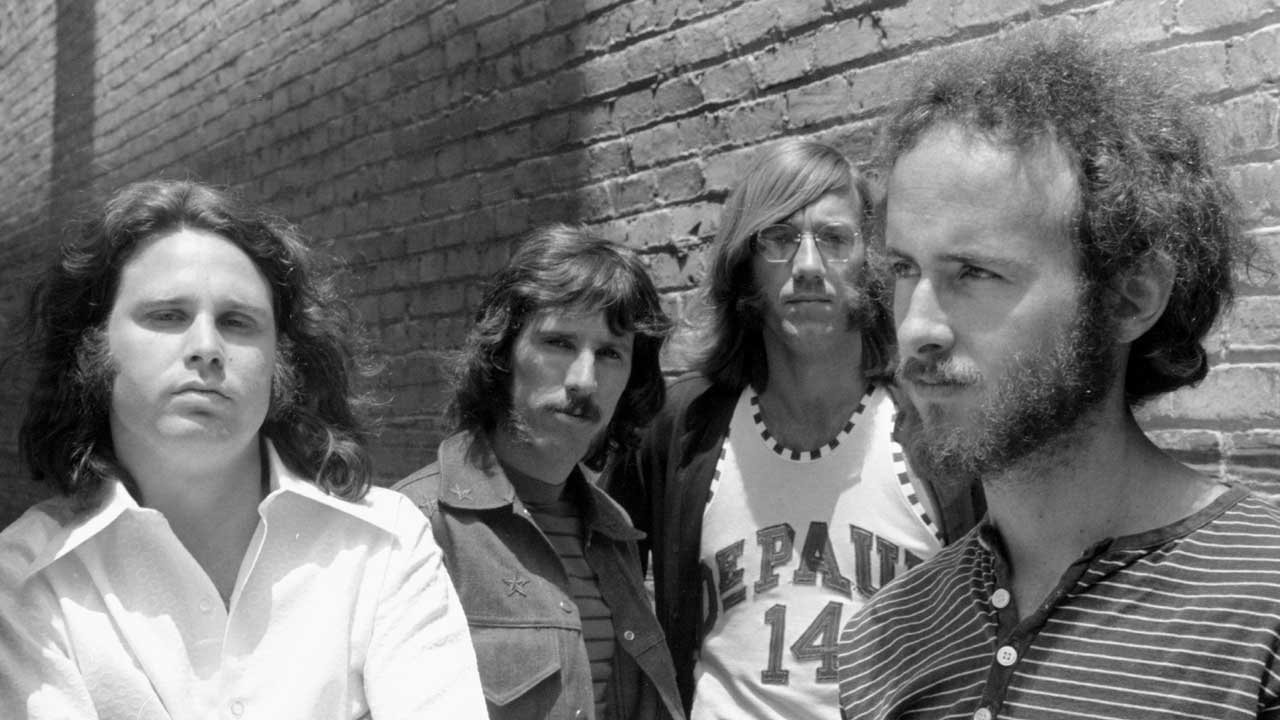
Communion, confrontation and incandescent music lie at the heart of The Doors’ contribution to popular culture. Thanks to frontman Jim Morrison’s charismatic performances, the LA-based quartet became the most talked-about band in America from 1967 until Morrison’s death in Paris in July 1971 – in circumstances akin to a murder mystery.
In between they released six studio albums, and the double Absolutely Live, mostly taken from their comeback tour in the aftermath of the notorious Miami show at the Dinner Key Auditorium on March 1, 1969. At that show, Morrison allegedly exposed himself. Four days later a warrant for his arrest was issued on charges of gross public indecency, including simulating oral sex on guitarist Robby Krieger (mimicked by David Bowie on Mick Ronson three years later).
Riots at Doors concerts were nothing new, nor were arrests for their lead singer. His increasingly erratic, often alcohol-induced misdemeanours, tolerated to a degree by keyboard player Ray Manzarek but less so by Krieger and drummer John Densmore – who threatened to quit if Morrison didn’t clean up his act – only enhanced Morrison’s legend.
The Doors’ final show, at the Warehouse in New Orleans on December 12, 1970, ended abruptly with Morrison smashing the microphone stand through the stage before lurching to the wings. A bulky, heavily bearded Morrison made amends by completing the L.A. Woman album that month in The Doors Workshop, their office transformed into a makeshift studio, close to the bars and sleazy joints that became his natural milieu.
An idiosyncratic individual to say the least, Morrison’s presence always galvanised The Doors, a band that combined a weird take on the blues, elements of Latin American beats and forays into poetry, orchestration, shamanistic hallucinations and a strain of dark Brechtian pop whose elusive nature kept The Doors as sinister as they could be playful.
They had a unique chemistry, and even when the experiments exploded, they produced something with unusual integrity. Given the antiseptic nature of much current music, The Doors retain an edge – fires were lit and danger was embraced. If you can’t keep a good man down, try handling a bad one. Start your engines – it’s going to be a bumpy ride.

This is where The Doors break on through (to the other side), delivering 11 matchless songs recorded in 1966 that are the antithesis of sunshine pop. Instead, the atmosphere is akin to a crystal meth state of heightened perception with side trips into the turbulent clamour of Light My Fire and the nightmarish gothic rock noir of The End.
Factor in the lurching Weimar cabaret of Alabama Song (Whiskey Bar), the sensory moan of End Of The Night and the cool psych R&B Twentieth Century Fox and you have a debut album that can’t be beaten as a consciousness-expanding masterpiece. Could they get any higher?
Morrison’s farewell hadn’t been flagged up yet, but here’s undeniable ennui: the changeling bolting for the exit rather than lingering in the decadent aisle. Riders On The Storm is the prescient farewell that closes the album, while the title track has an Amtrak howl and a magnificent rhythm that locks all four players into an inspired groove.
Sweet moments of Californian clarity come from Robby Krieger’s Love Her Madly and the hypnotic Hyacinth House, with Manzarek’s Chopin-inspired organ solo an underrated highlight. Locked in – figuratively and musically – by Elvis’s bassist Jerry Scheff, The Doors expanded time on their long goodbye.
Jim Morrison plays Moog synthesiser on the title track, there’s backwards piano on Unhappy Girl and white noise effects on the doomy Horse Latitudes as The Doors go experimental. The hits were People Are Strange and Love Me Two Times, the latter featuring Manzarek on harpsichord.
The somewhat risky cover – a photo of a circus troupe in a Manhattan alleyway, with their first album – was a neat touch. Sonically, it echoes the debut, with the garage stomp My Eyes Have Seen You drifting into the tripped-up I Can’t See Your Face In My Mind, before the band explode on When The Music’s Over.
Waiting For The Sun (Elektra, 1968)
Setting a mellower mood, The Doors’ third album got some stinking reviews but still made it to No.1 in the US. In retrospect, the reflective tone, balanced by Not To Touch The Earth (‘Dead President’s corpse in the driver’s car’) and the social diatribes The Unknown Soldier and Five To One, give Morrison a chance to perfect both his croon and his rock-star howl.
He was the Lizard King: he could do anything, etc. Musically, The Doors are on top form, especially on the flamenco-driven Spanish Caravan and the US chart-topping Hello, I Love You. Business as (un)usual.
The Soft Parade (Elektra, 1969)
The addition of Paul Harris’s string and brass arrangements brought accusations that The Doors had sold out, but many love this album the most, probably because of the invigorating rumble of Shaman’s Blues and the effortless Touch Me, featuring Curtis Amy’s swooping tenor sax solo.
The latter was originally called Hit Me, in reference to blackjack, but paranoia prompted Morrison’s lyric change. The notion that he could be a poet as well as a singer prompted him to cite TS Eliot, Nietzsche and the LA hipsters with their ‘Peppermint miniskirts… chocolate candy’ in the title track. This is fresh-air Doors.
Morrison Hotel (Elektra, 1970)
With its two sides titled Hard Rock Café and Morrison Hotel, this is the real deal: sweat-soaked, beer-chugging, adrenalin-powered. The opening Roadhouse Blues is irresistible and never lets up, Waiting For The Sun looms into view like a 16-wheeler, while You Make Me Real and the bloody Indians legend of Peace Frog, powered by Krieger’s wah-wah guitar, are stuffed with dramatic incident.
Morrison is in playful mood, too, hamming up Land Ho! and the shanty Maggie M’Gill. Oddly, they dug back for the 1966 track Indian Summer but didn’t include L’America, which appeared on L.A. Woman a year later.
Boot Yer Butt: The Doors Bootlegs (Bright Midnight, 2003)
Robby Krieger went through the archives to compile this four-disc collection of live rarities, which includes four tracks from their penultimate show, at State Fair Music Hall, the lengthy attack on Love Her Madly being the charm.
It’s hard to source in its original box now (it costs a fortune), but it’s worth hearing to experience The Doors moving through the gears from club hopefuls to hardened professionals, and Morrison’s transition from sex symbol to troubled soul provides a compelling narrative. The sound quality doesn’t match the clarity of their studio work, but there’s real menace within.
An American Prayer (Elektra, 1978)
Original Doors producer Paul Rothchild called this posthumous album “a rape of Jim Morrison” (steady on!), but these attempts to shoehorn Morrison’s poetry from Elektra sessions in 1969 and 1970 (already available on the Rock Is Dead bootleg) provided an unheard side to the singer and seemed like an honest attempt to honour a friend.
Morrison wanted film score maestro Lalo Schifrin to orchestrate his spoken words, and approached Dali-esque artist TE Breitenbach to paint a triptych cover, which he did. It’s a shame neither of these materialised – Morrison died in Paris, with the original tapes and art in his bag.
Absolutely Live (Elektra, 1970)
Absolutely vital. Having been banned down south post-Miami, The Doors stuck it to the East Coast, where a fanatical following made this album a must-have. The atmosphere crackles, especially when Morrison goads, and the loose shuffles pay dividends on the wonderful Universal Mind back on home turf in California at the Art Deco Aquarius Theatre (the revamped Hullabaloo/Kaleidoscope on Sunset Boulevard).
Krieger excels on When The Music’s Over. Celebration Of The Lizard arrives and sheds its skin. Who Do You Love boils the blood… These are strange nights of stone. Lions in the street. The ceremony is about to begin.
And one to avoid...
You can trust Louder
Other Voices / Full Circle (Rhino, 2015)
These post-Jim contract-filling albums from 1971 and 1972 didn’t stink the place out but, despite the band’s prowess, lacked focus. The instrumental passages almost make you believe nothing has changed, but the elephant in the room lets out a loud trumpet as passable songs like Tightrope Rode and Hang On To Your Life drift past aimlessly.
Krieger, Densmore and Manzarek were prickly when asked: why? But one senses their dilemma. Still, thanks but no thanks. And the cover for Full Circle is unforgivable. Seldom has the phrase ‘turning in his grave’ seemed more applicable. Move on, nothing to see here.
Sign up below to get the latest from Classic Rock, plus exclusive special offers, direct to your inbox!
Max Bell worked for the NME during the golden 70s era before running up and down London’s Fleet Street for The Times and all the other hot-metal dailies. A long stint at the Standard and mags like The Face and GQ kept him honest. Later, Record Collector and Classic Rock called.
